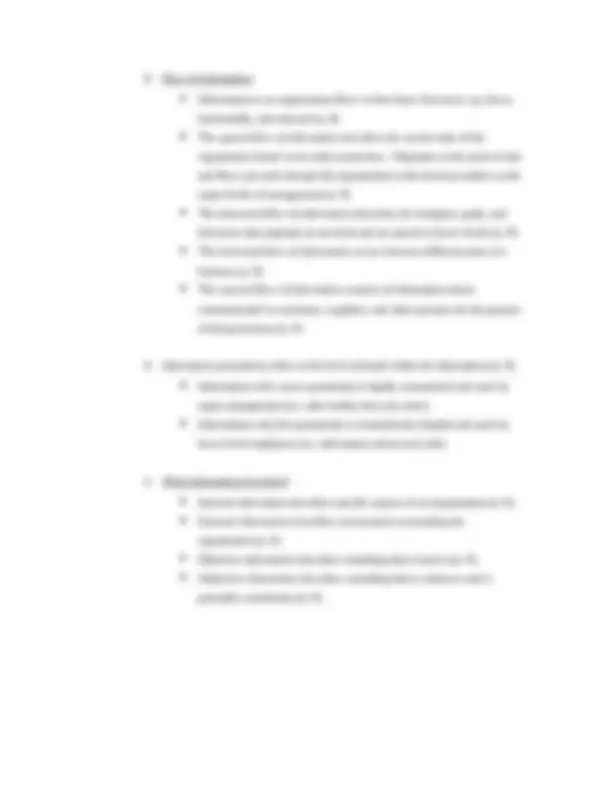



Study with the several resources on Docsity

Earn points by helping other students or get them with a premium plan


Prepare for your exams
Study with the several resources on Docsity

Earn points to download
Earn points by helping other students or get them with a premium plan
Community
Ask the community for help and clear up your study doubts
Discover the best universities in your country according to Docsity users
Free resources
Download our free guides on studying techniques, anxiety management strategies, and thesis advice from Docsity tutors
An introduction to management information systems (mis), explaining the concept of mis, its focus on people's interaction with technology, and its role in helping organizations understand competition, customers, business partners, and their own operations. The document also covers trends in today's economic environment, including electronic commerce, telecommuting, and the digital economy, as well as the dimensions and flow of information within an organization.
Typology: Study notes
1 / 3

This page cannot be seen from the preview
Don't miss anything!


Introduction to MIS August 28 – September 1 What is MIS?
Today, the overwhelming majority of employees are knowledge workers. A knowledge worker is a person that works with and produces information (p. 4).
management, and use of information technology tools to help people use information more effectively (p. 4). o The sole focus of MIS is not technology. Instead, MIS focuses on how people interact with technology in order to maximize the effectiveness of information (p. 5).
Know and understand your competition. Know your customers and provide them better service. Work closely with business partners, particularly suppliers. Know your organization better.
o Several terms have emerged to describe trends in today’s changing economic environment.
technology, particularly the Internet.
cell phones, etc.) to work in a place other than a central location (p. 5).
ordering of products and services.
customer uses a wireless device such as a cell phone or personal digital assistant (p. 18).
and geographical boundaries. A transnational firm produces and sells products and services in countries all over the world.
this economy will be “paperless”.
meaning (p. 6).
Is the information available when you need it? In other words, is it timely? Does the information describe the appropriate time period?
Do you have access to information no matter where you are (home, airplane, hotel, etc.)?
Do you have information that is usable and understandable by you? Is the information accurate?